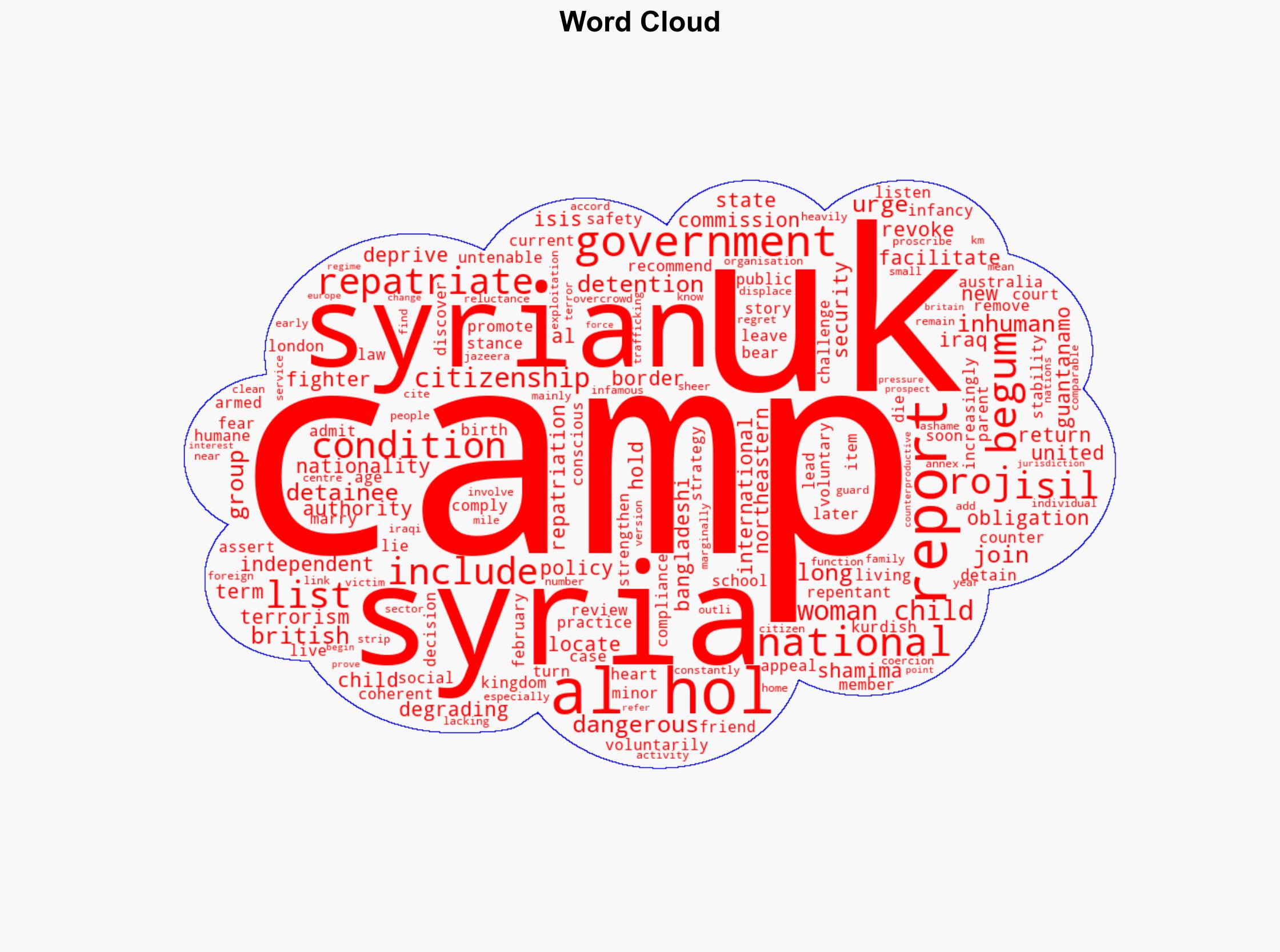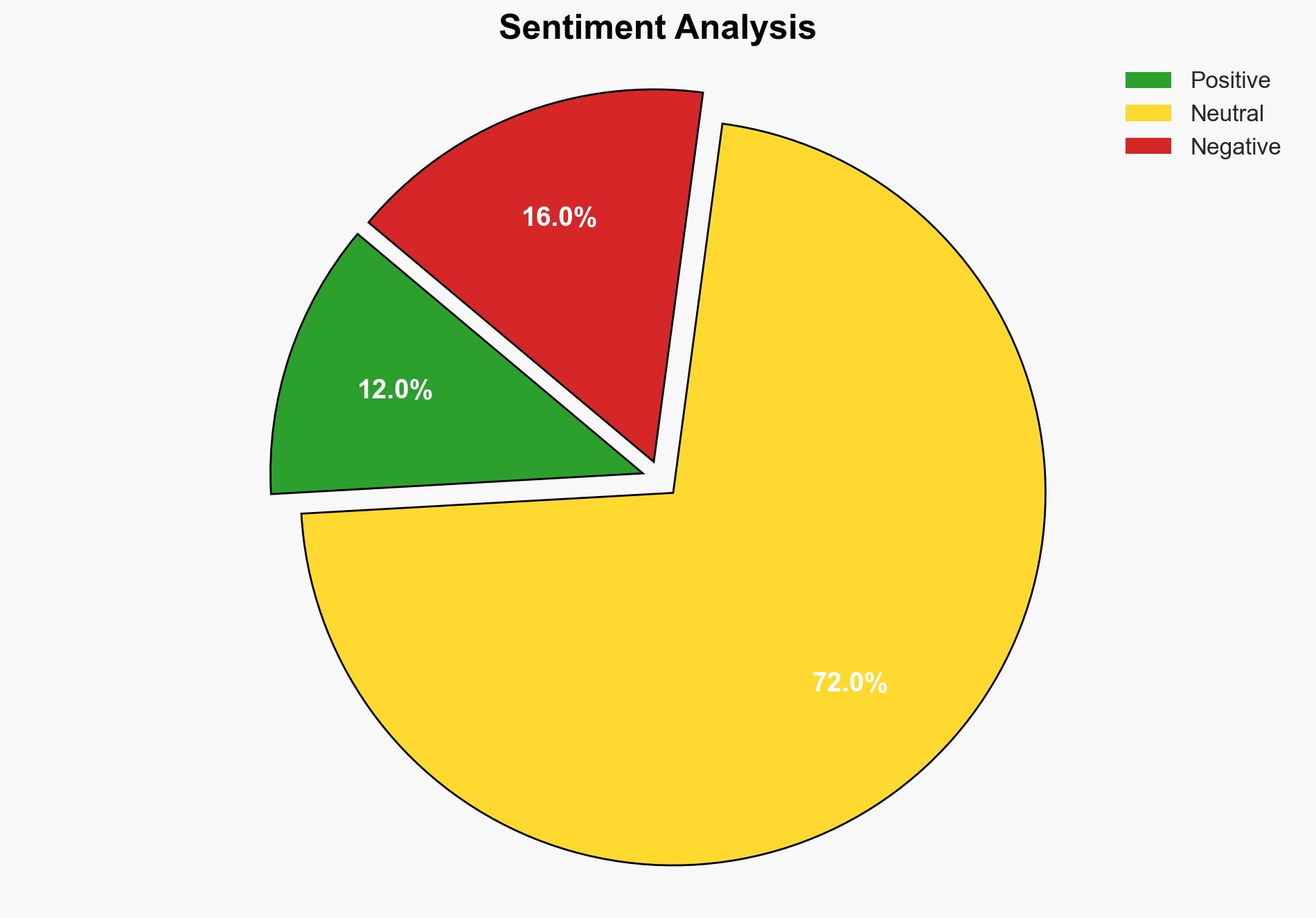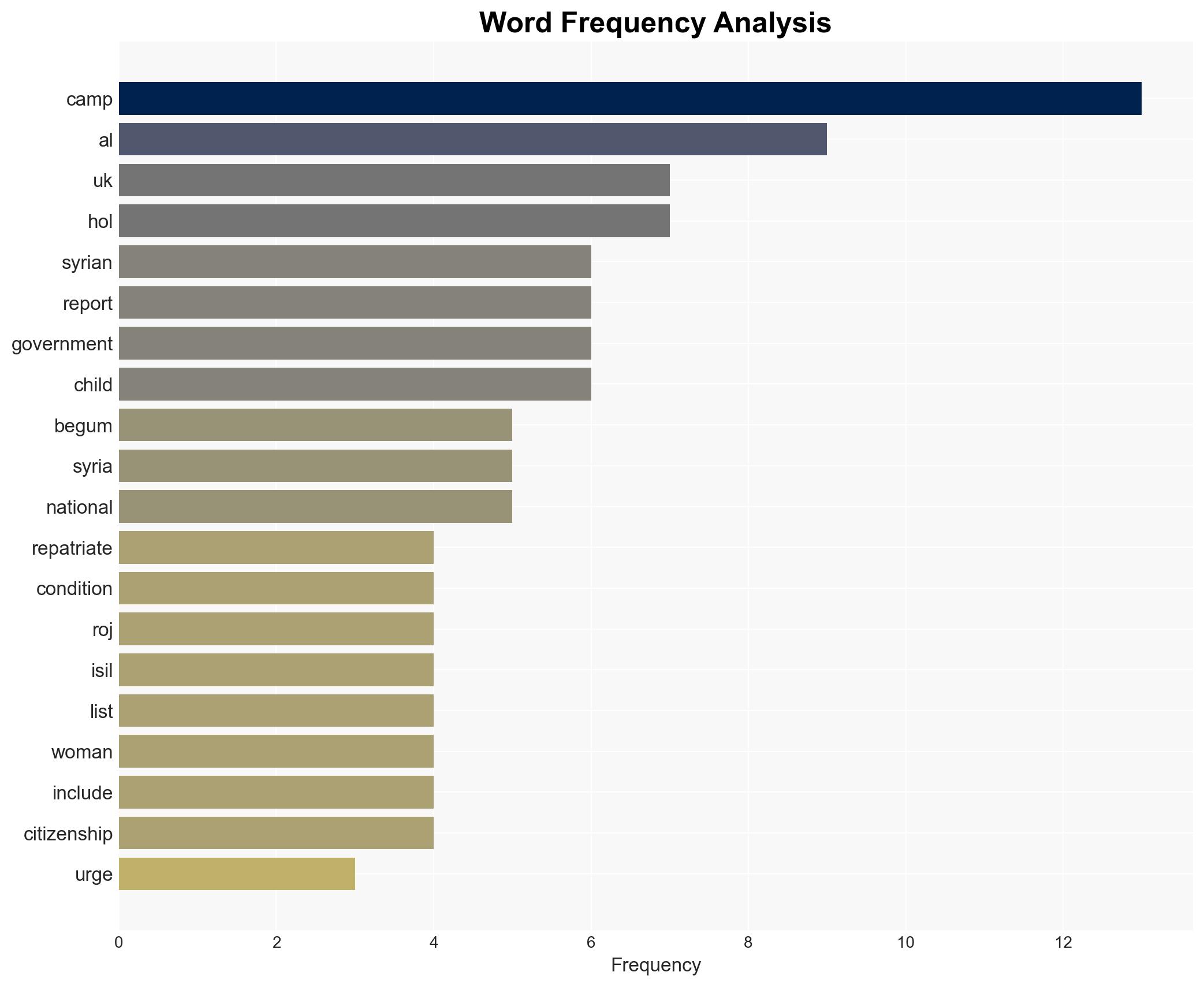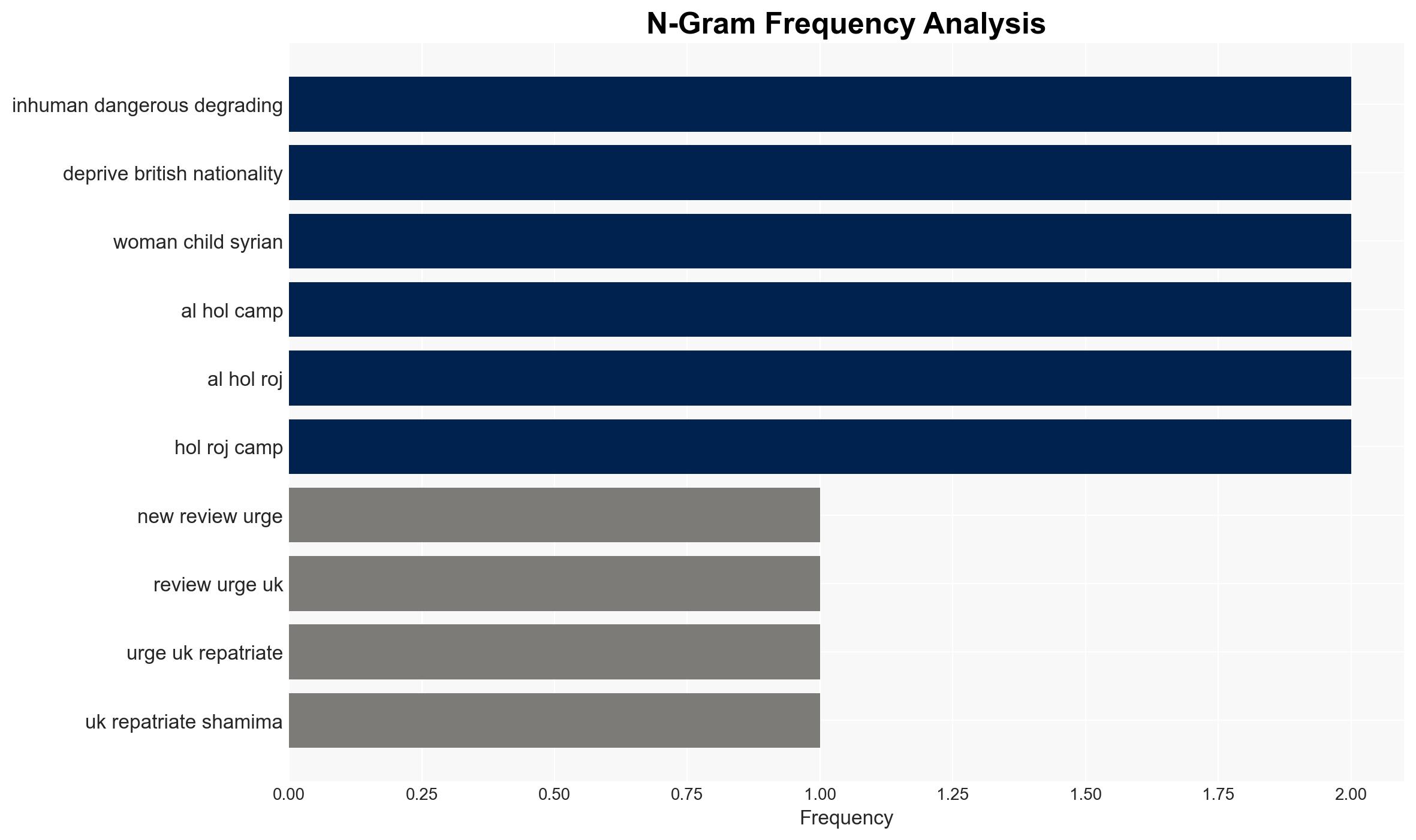New review urges UK to repatriate Shamima Begum others from Syria – Al Jazeera English
Published on: 2025-11-13
AI-powered OSINT brief from verified open sources. Automated NLP signal extraction with human verification. See our Methodology and Why WorldWideWatchers.
Intelligence Report: New review urges UK to repatriate Shamima Begum others from Syria – Al Jazeera English
1. BLUF (Bottom Line Up Front)
The strategic judgment is that the UK should consider repatriating Shamima Begum and others from Syria to comply with international obligations and enhance long-term security. The most supported hypothesis is that repatriation, under strict legal and security frameworks, is more beneficial than leaving individuals in Syrian camps. Confidence level: Moderate. Recommended action: Develop a comprehensive repatriation strategy that includes deradicalization programs and legal proceedings.
2. Competing Hypotheses
Hypothesis 1: Repatriating Shamima Begum and others will enhance the UK’s long-term security by allowing for controlled monitoring and rehabilitation.
Hypothesis 2: Repatriating these individuals poses a significant security risk and may lead to increased domestic radicalization and terrorism.
Hypothesis 1 is more likely due to the potential for controlled legal and rehabilitative measures, whereas Hypothesis 2 assumes a lack of effective security and legal frameworks, which can be mitigated with proper planning.
3. Key Assumptions and Red Flags
Assumptions: The UK has the capacity to monitor and rehabilitate repatriated individuals effectively. International obligations require action beyond current measures.
Red Flags: Potential public backlash against repatriation, legal challenges, and the risk of individuals re-engaging in terrorism.
Deception Indicators: Possible misinformation about the conditions and intentions of individuals in camps.
4. Implications and Strategic Risks
Political: Repatriation could polarize public opinion and strain government resources.
Cyber: Increased risk of cyber threats from radicalized individuals or groups.
Economic: Costs associated with repatriation, monitoring, and rehabilitation programs.
Informational: Potential for misinformation campaigns to influence public perception.
5. Recommendations and Outlook
- Develop a robust repatriation framework with legal, security, and rehabilitative components.
- Engage in public communication strategies to address concerns and misinformation.
- Best scenario: Successful reintegration and reduced long-term security threats.
- Worst scenario: Failed reintegration leading to increased domestic terrorism.
- Most-likely scenario: Mixed outcomes with some successful reintegrations and ongoing challenges.
6. Key Individuals and Entities
Shamima Begum: Central figure in the repatriation debate.
UK Government: Responsible for policy decisions and implementation.
Kurdish-led Authorities: Current custodians of detainees in Syrian camps.
7. Thematic Tags
Regional Focus: Middle East, United Kingdom
Structured Analytic Techniques Applied
- Causal Layered Analysis (CLA): Analyze events across surface happenings, systems, worldviews, and myths.
- Cross-Impact Simulation: Model ripple effects across neighboring states, conflicts, or economic dependencies.
- Scenario Generation: Explore divergent futures under varying assumptions to identify plausible paths.
Explore more:
Regional Focus Briefs ·
Daily Summary ·
Methodology





